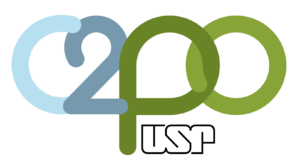He holds a degree in Biological Sciences from the Universidade Federal do Rio de Janeiro (1978), a master’s degree in Biological Sciences (Biophysics) from the Universidade Federal do Rio de Janeiro (1982), and a Ph.D. in Biological Sciences (Biophysics) from the Universidade Federal do Rio de Janeiro (1985). He completed postdoctoral training at the Max Planck Institute in Tübingen, Germany (1986/87), the Center for Vaccine Development at the University of Maryland, USA (1991), the Department of Microbiology and Molecular Biology at Tufts University, USA (1992), and the Department of Medical Microbiology at the University of Gothenburg, Sweden (1996). He was a visiting researcher at the Institute of Genetics at the University of Bayreuth, Germany (2000-2005). He served as an assistant professor in the Department of Biophysics and Radiobiology at the Universidade Federal de Pernambuco (1983-1989) and at the Carlos Chagas Filho Institute of Biophysics at the Universidade Federal do Rio de Janeiro (1989-2000). Currently, he is a tenured professor (1999) and full professor (2000) at the Universidade de São Paulo and is responsible for the Vaccine Development Laboratory in the Department of Microbiology at the Institute of Biomedical Sciences. He is a Level 1A Researcher at the National Council for Scientific and Technological Development. He was Director of the Institute of Biomedical Sciences at USP (2017-2021) and Coordinator of the Pasteur-USP Scientific Platform (2018-2023). He is President of the Deliberative Council of the USP/IPEN business incubator (CIETEC) and a member of the Health and Biotechnology Production Chain Committee (Comsaude) of FIESP. He has received several awards related to scientific research and technological innovation. He has encouraged and participated in the creation of two spin-off companies from USP. He has experience in the fields of Microbiology, Molecular Genetics of Microorganisms, Immunology, serological diagnostic methods, and vaccine development. He develops various vaccine technologies, such as mucosal vaccines, subunit vaccines, vaccines with attenuated and vectored microorganisms, genetic vaccines (DNA and mRNA), polyepitope vaccines, and protein-based vaccine adjuvants. He has developed vaccine formulations aimed at controlling diarrheal diseases caused by enteric bacteria (diarrheagenic Escherichia coli and Salmonella), dengue virus, Zika, chikungunya, coronavirus, Streptococcus mutans and S. agalactiae, paracoccidioidomycosis, malaria, and tumors induced by papillomavirus. He has published about 220 scientific articles in specialized journals. He holds patents granted in Brazil and the USA. (Translated from Currículo Lattes)





